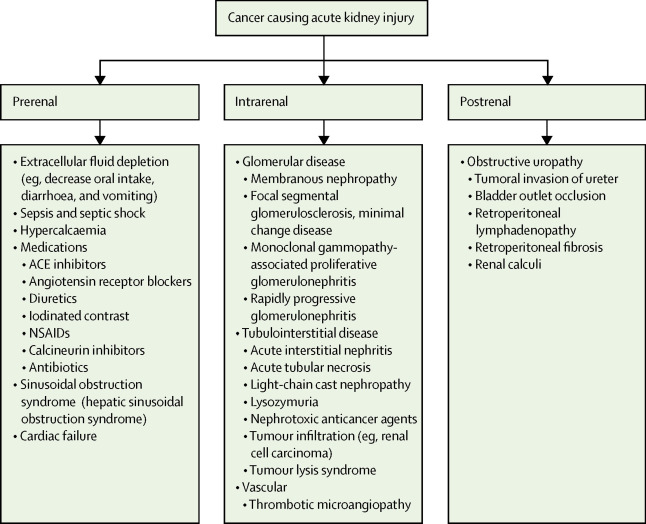End-stage kidney failure, otherwise known as renal end-organ failure (REN), is characterized by the inability of the kidneys to produce urine on its own. A patient suffering from end-organ failure has to receive dialysis or transplantation for at least several weeks to live comfortably. There are two major types of renal diseases. Kidney diseases caused by viral infections are called nephritis and renal diseases caused by heredity are called nephropathy.
Some diseases cause kidney failure through the development of renal cell carcinoma (RCC), or asbestosis. Other diseases causing kidney failure include renal tumors, infections, and malignancies.
The most common forms of end-organ failure are R.C.D. and renal colic, the last being caused by the accumulation of fluid in the abdomen, which can be treated with diuretics and intravenous fluids, and the former caused by fluid build-up in the abdomen, which is usually treated with intravenous fluids and diuretics.
Kidney cancer is a rare form of kidney disease. Kidney cancer is most commonly associated with menopause and is diagnosed when an enlarged tumor in the kidney is visible on routine urinalysis.
Primary renal failure, also called primary renal failure (PRN), occurs when the kidneys are not functioning and produce enough urine for the body's needs. PRN usually results from one of three different underlying medical conditions, including renal colic, nephrotic syndrome, or adrenalectomy. Kidney disease can develop secondary to diabetes, infection, kidney stones, hyperchloremic dehydration, or hypovolemia.
Another common condition that leads to kidney failure is anemia
Anemia is a condition in which the body's red blood cells cannot replace iron and other substances the body needs.

A urinary tract infection is an infection of the urinary tract
A urinary tract infection can occur anywhere in the urinary tract and can occur in both adults and children. Symptoms of a urinary tract infection include fever, severe pain or burning when urinating, and cloudy urine. Some of the symptoms of infection include itching, burning blood in the urine or discharge, fever, and pain when urinating.
In some cases, certain medications can cause kidney failure. Some drugs, including some antibiotics, can cause kidney damage. When a drug has been prescribed for an ongoing problem, it is important to get your doctor's prescription to make sure you don't have side effects.
Certain medicines, like birth control pills, can affect a woman's hormones and result in menstrual cramps and bleeding. Pregnant women should never take certain medicines without consulting with their doctor first.
People taking certain medications should avoid salt and other salty foods and drinks. These medications may interact with certain medications that are taken to help treat the kidney disease.
If the disease is advanced, surgery may be required to remove the entire kidney or parts of the kidney depending on the severity. Surgery will cause damage to the kidney and may cause infection or death of the patient. Kidney disease that is not properly treated may lead to kidney stones that may block the urinary tract.
Kidney disease is a chronic disease that can affect anyone at anytime. It can develop from a single event such as a kidney infection or kidney failure, but it is more common to develop over time.
The most important thing to do when considering the possible complications of kidney disease is to consult a physician who specializes in the disease and take the necessary steps to determine the best course of action to treat the disease. Taking certain tests may be necessary and seeing a doctor as soon as possible is the best way to avoid these complications.